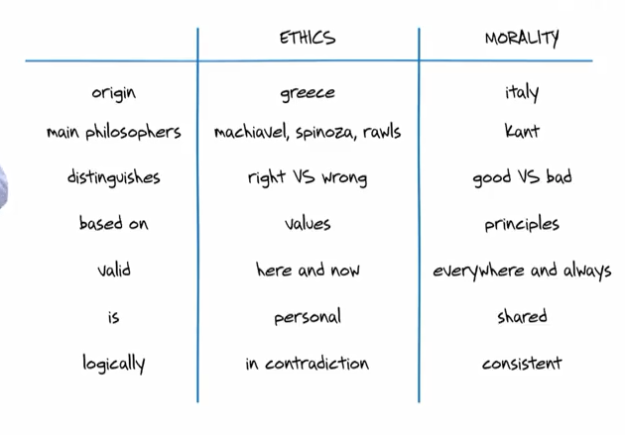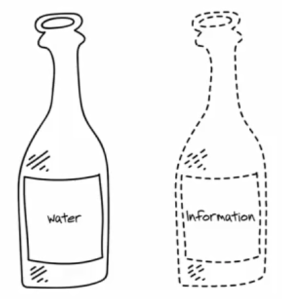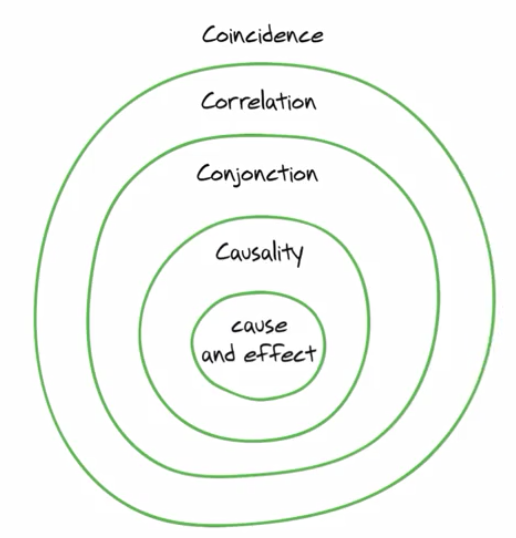Again, with a great charm and wit, Professor Luc de Brabandere offered part 2 of the course. I was looking forward to having the part 2 because I enjoyed the part 1 of the course so much. Not like other MOOC video, his lecture is very unique and intellectually stimulating – I had several moments during the course that I had to pause the video and think about the topic. In this part 2, the lecture was focused on how to think in the fast moving world. Here are my learning points.
Traditionally people tend to focus more on Matter (e.g. tangible material) rather than Information. A story about a bottle water company. Professor asked them what they are selling – Matter (water) or Information (brand & marketing)? When the matter is more focused, below 4 questions can help to determine what’s going on. However, information does not fit into these questions….this means we need a new way of thinking.
- Where are things? – Matter is easy to answer, but information is not easy to answer to this question.
- When do things happen? – Time used to measure lots of things.
- What is true? What is false? Café in Casablanca built after the movie. Which one is the real? We need critical thinking.
- Why do things happen? Most important. Not easy to answer. When there are more than 5 answers, answering ‘why’ doesn’t have any value. Especially, it is difficult to find ‘why’ in Information because the world is changing.
With the Big Data technology, three outter areas can be defined (conicidence, correlation, conjunction). However, Big data can help in a certain level of degree in all areas, but it is up to us to define the final cause & effect. This means the technology can find the missing links and help us to get close to the reason, but not the actual cause & effect. We are the one who need to draw the relationship between cause & effect with a new mind set.
 Finally, techniques to survive in the fast moving world.
Finally, techniques to survive in the fast moving world.
- Choose select define words
- Criteria
- Beware of questions
- Agenda should be put on as a question.
- Question should be open, visible. To run a discussion, brain storm, keep it under the image line rather than abstract word.
- Use creative technique
- Use analogy. e.g. Imagine you are…
- Think visual
- Left brain for text and right brain for diagram which makes it very powerful.
- Don’t stop thinking. Never stop thinking.
- Use humor
- Humor and Irony is different. Irony is a weapon. Don’t use it.
Avoid hypothesis in the future
Q: When there is a crossroad, what to do to prevent a collision?
A: Two options.
1. Light signal – this needs to predict future traffic and need to add hypothesis in the future.
2. Roundabout – no need to have hypothesis for the future.
Conclusion: remove traffic lights and add more roundabouts in the fast moving world.
Summary
In recent months, I haven’t had an opportunity to think deep about the subject. In my daily life, I made so many decisions. Sometimes difficult decisions, sometimes easy decisions. I really feel great philosophy can help me in many ways, especially making decisions. In order to make a decision, it needs to be based my value and the value comes from direct/indirect experience. In my opinion, philosophy helps me to enhance my indirect experience and gives me an ability to perform Meta-thinking. I really enjoyed this course and hope to get something out of it for my daily life at work and life. Thanks to Professor Luc de Brabandere and Coursera!

